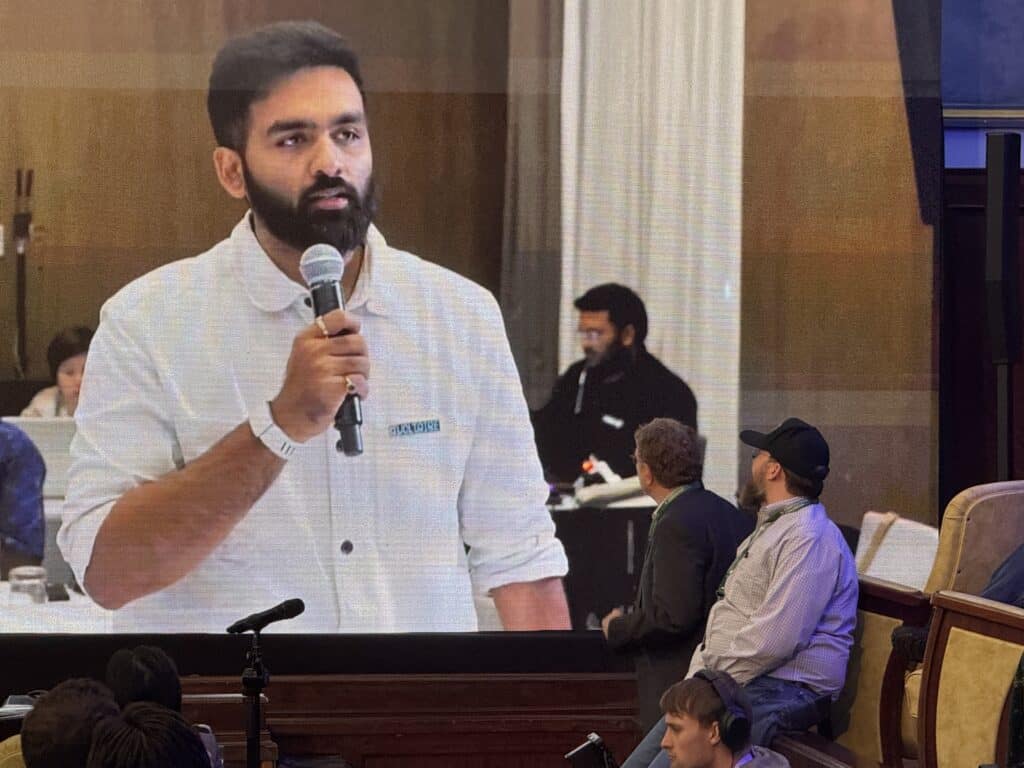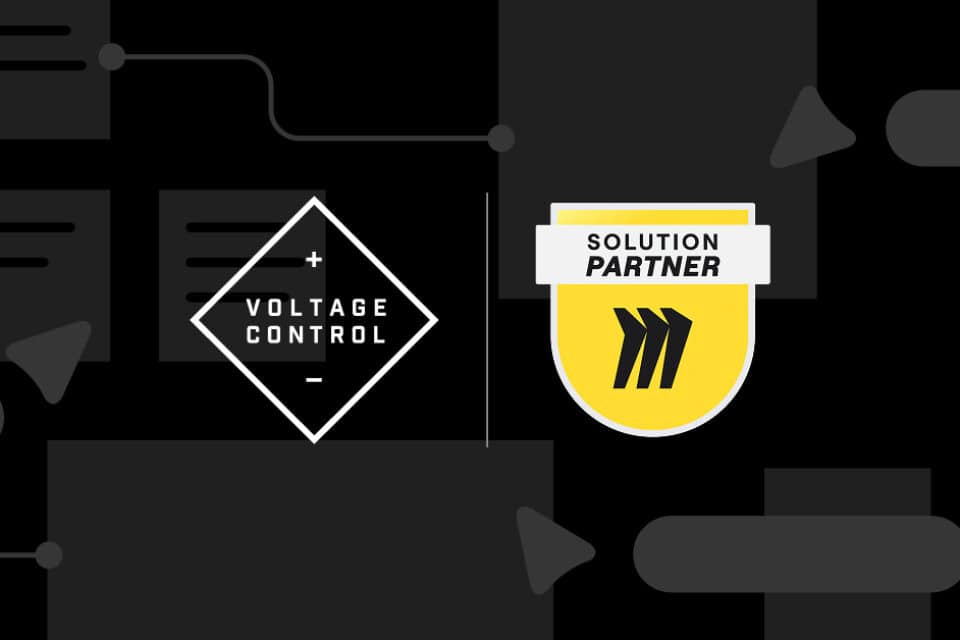Table of contents
Blockchain platform Cardano has recently broken new ground by transitioning to community-led on-chain governance through the ratification of their constitution. The Cardano Constitution was written, revised, and finalized through a five-months-long process that included community workshops in 50 different countries, with over 1,400 participants.
In December 2024, the final steps of this process took place as a three-day Constitutional Convention was held simultaneously in Buenos Aires, Argentina, and Nairobi, Kenya. Once the delegates there voted to approve the constitution, with an overwhelming 95% voting “yes,” the document was passed on for on-chain ratification by the community’s members around the world.
No cryptocurrency provider or blockchain platform had ever before taken on decentralization at this scale and with such a commitment to collaboration and consensus. Cardano’s work can be considered a blueprint for collaboration on an international and even global scale, with key ramifications for the fields of decentralization, blockchain, and facilitation.
The Cardano community partnered with Voltage Control to facilitate and design this process. Our facilitators traveled to countries near and far, conducting sessions in multiple languages, and sometimes dialing in with remote facilitation and hybrid participation.
In this article, we break down the basics of Cardano’s decentralized governance and what went into the facilitation process for the Cardano Constitution.
Decentralization, Explained
Decentralization is defined as an organizational structure based on the distribution or redistribution of power away from a central authority. Decentralization can be implemented in countless spheres, including in organizations, businesses, governments, technologies, and software, with new strategies and applications of this form of governance continually emerging.
Decentralized governance refers specifically to the shift away from centralized decision-making and administration toward a distributed structure of activities and power. For Cardano, their new constitution would outline the structure of their decentralized organization and how it is governed.
Decentralization is a particularly important trend in Web 3.0 and its sister concept, Web3. As the third generation of the World Wide Web, Web 3.0 is a developing iteration of the internet that features increased connectivity through a smarter internet, offering a more transparent and open online experience. Web3 is centered around blockchain technology and how it can redistribute control of data and identities online.
For facilitators, it’s important to understand the opportunities for decentralization that are introduced by Web3 and Web 3.0. As the latest version of the internet develops and grows, the people behind it will have to collaborate in greater numbers and on bigger projects—which requires great facilitation.
The innovations of Web3 will reach well beyond technological industries, as will the practices of decentralization used by blockchain platforms. By becoming familiar with these trends, facilitators can stay on the leading-edge.
Decentralized Facilitation Process
Since its founding, Cardano has prioritized the core principles of Web3, including transparency, autonomy, and equity. Its constitution would become a pioneering document for cryptocurrency and blockchain networks that are pursuing decentralization, as the document was created through a collaborative, egalitarian process.
To do this, the Cardano community had to somehow bring together thousands of participants from around the world to work collaboratively. The delegated participants would have to come to a consensus on the final document before turning it over to the broader community for ratification.
The Voltage Control team was a part of this process from the introduction of CIP-1694, which introduced the constitution creation process to the chain. From there, Voltage Control Certified Facilitators assisted in the design of the process and facilitated dozens of events, including Community Workshops in 50 different countries, remote and hybrid Delegate Synthesis Workshops, and the three-day Cardano Constitutional Convention.
Community Workshops
A total of sixty-three Community Workshops were held in fifty countries around the world during three busy months. These day-long events were an opportunity for Cardano community members to gather and discuss the text of the Constitution.
Facilitators worked with hosts from Cardano member organization Intersect to organize these workshops, which were typically held in person, with some hybrid and remote events as needed. Voltage Control tapped into our global network of Certified Facilitators and alumni to pair facilitators with workshops, including sending facilitators who spoke the participants native languages when available.
At the Community Workshops, participants worked through four to five specific questions about the text of the Constitution. Time was limited at these events, so these questions gave each group designated topics to focus on and work through. The Civics Committee managed the distribution of questions, which could be kept flexible as time went on and it became apparent which topics would need more attention.
The participants would also elect a delegate to represent their Community Workshop at the upcoming Cardano Constitutional Convention.
In order to prepare for the Constitutional Convention, facilitators and hosts worked together to hold remote Global Synthesis Workshops, which brought together elected delegates to review data and feedback from the Community Workshops. These Synthesis Workshops occurred alongside the Community Workshops that were happening around the globe, which allowed hosts to adjust the agendas as needed.
The facilitation team focused on staying adaptable to the needs of each event and each group. Facilitator Caterina Rodriguez, who facilitated South American community workshops in Spanish, spoke about this, saying, “There were groups that wanted to move to the process methodically. There were groups that wanted to take no breaks. Then there were groups that were like, we want a full-blown debate. So it was about being adaptable to what was emerging in the space.”
Cardano Constitutional Convention
The climatic event for this process occurred over three days, from December 4 to December 6, 2024, as the Cardano Constitutional Convention. The gathering was held simultaneously in Nairobi, Kenya, and Buenos Aires, Argentina, with additional remote participants attending from around the world. Participants were connected in real-time via Zoom, Mentimeter, and other digital tools.
In total, 450 attendees, including 63 delegates, represented 51 different countries for this collaboration. This historic event marked the end of two years of planning and five months of intensive work on the network’s decentralized governance constitution.
Led by facilitators and community hosts, attendees reviewed and refined the text of the Cardano Constitution through discussions and collaborative workshops taking place over the first two days, with edits to the document being made in real time. On the final day, delegates signed off on the historic document with a 95% approval vote.
The Cardano Constitutional Convention also served as an important gathering for the blockchain ecosystem, with community members able to build connections with each other through in-person and hybrid channels. Informational sessions, including speakers and panels, invited participants to learn more about the blockchain ecosystem, encouraging continued engagement even after the event.

By building community knowledge and personal relationships, the event hosts ensured the continued successful decentralization of Cardano’s governance. Attendees gained a better understanding of key topics and grew their personal networks.
Making Blockchain History
On February 19, 2025, Cardano Co-Founder Charles Hoskinson announced that the Constitution had been ratified on-chain with an 85% approval rate, well above the 75% approval rate needed to be enacted. Cardano became the first truly decentralized blockchain with a community-run governance model.
This groundbreaking moment is just the beginning for Cardano. Through Voltage Control’s facilitation process, the Cardano community became enthusiastically engaged with the governance process. This engagement will continue into the future, which is essential for the success of the blockchain platform.
Cardano Civics Committee Secretary Danielle Stanko commented, “We have so many people now in the ecosystem who care about governance, who know about the Constitution and have read it, and that’s a really great foundation to start from.”
For the broader Web3 and blockchain community, the Cardano Constitution serves as a pivotal proof of concept. Through strategic facilitation, the Cardano community was able to come together and communally write, revise, and approve a governing document for their blockchain network. Thousands of participants from around the globe engaged with the process, partaking in an effectively decentralized process.
Facilitation for Blockchain and Cryptocurrency
For the facilitation team from Voltage Control, the process required maximum deployment of facilitation skills and methodologies. The global collaboration brought together thousands of participants from different backgrounds, who spoke different languages and held varying opinions on the future of Cardano governance.
All facilitators had obtained their Facilitation Certification from Voltage Control. The Facilitation Certification program is aligned with International Association of Facilitators (IAF) competencies, and it builds the foundational facilitation skills needed to successfully transform meetings, drive change, and inspire innovation.
Our certified facilitators helped the Cardano community overcome countless moments of disagreement and paralysis, assuring a supportive, productive use of time for every workshop and event. Together, Cardano and Voltage Control proved that a large, global network of people can achieve wide consensus through well-executed facilitation.
To work with Voltage Control on your project, contact our team today. To learn more about the facilitation of Cardano’s constitution, read our complete case study here.


